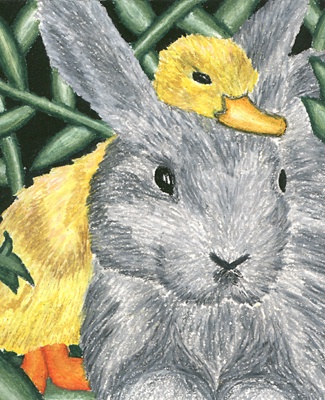All Nonfiction
- Bullying
- Books
- Academic
- Author Interviews
- Celebrity interviews
- College Articles
- College Essays
- Educator of the Year
- Heroes
- Interviews
- Memoir
- Personal Experience
- Sports
- Travel & Culture
All Opinions
- Bullying
- Current Events / Politics
- Discrimination
- Drugs / Alcohol / Smoking
- Entertainment / Celebrities
- Environment
- Love / Relationships
- Movies / Music / TV
- Pop Culture / Trends
- School / College
- Social Issues / Civics
- Spirituality / Religion
- Sports / Hobbies
All Hot Topics
- Bullying
- Community Service
- Environment
- Health
- Letters to the Editor
- Pride & Prejudice
- What Matters
- Back
Summer Guide
- Program Links
- Program Reviews
- Back
College Guide
- College Links
- College Reviews
- College Essays
- College Articles
- Back
Animal Testing: Will It Ever End?
Animal cruelty has always been a major issue millions have been advocating for around the world. Multiple cosmetic brands continue to test their products on animals despite there being other affective ways to gain the same information. Estee Lauder Companies, a cosmetic giant that brands like M.A.C. and Clinique are apart of, is one of the many companies that still allow their brands to assess their merchandise on animals. The animals undergo burning, shocking, starvation, drowning, and other forms of “tests” on a daily basis. Animal testing in the cosmetic industry is abuse in which the organisms live their lives as prisoners. (PETA)
Lush, a cosmetics brand known for there handmade products and heavenly smelling store, has been leading an anti-animal cruelty campaign since the start of their company in 1995. In 2012 Lush held its first ever-global campaign against animal cruelty. The Fighting Animal Testing Campaign was being held in over 800 shops in forty-nine countries. In the window of a Lush Cosmetics shop in London, preforming artist, Jacqueline Traide, volunteered to show the masses, what actually happens during cosmetic animal testing. She was subjected to a full day of testing that paralleled the abuse an animal would go through. The show concluded with Jacqueline being “killed” and taken out of the store to be left on the side of the street as though she was a piece of garbage. This presentation is one of the many steps the company is taking to spread awareness about the cruelty that millions of animals are subject to. Around the globe, workers in Lush shops were getting shoppers to sign a petition to stop the delay of ten years on the Cosmetic’s Directive, a ban on all animal testing, in the European Union that major cosmetics companies so badly wanted. Although the legislation was originally passed in 1993, it only began to be enforced in 2013 due to the delays the European cosmetic industry has been pushing legislators for. They were asking for another ten years when it was all put to a stop. (Buzzfeed)
In the United States of America, animal testing is still a problem that is being fought across the country. Brands have been switching from animal testing to other forms of research, and thousands of influential activists are promoting the products of cruelty free brands to support the cause through the Internet. These “cosmetic celebrities” are posting makeup tutorials using only cruelty free makeup as well. Furthermore, the data collected in animal tests is extremely unreliable due to the differences between animal and human skin; this information has become widely publicized in recent years. While the cruelty free cause has been blowing up in America, the country is still associated with China and their manufacturing industry. In China, in order to import any sort of cosmetic into the country companies must give the government rights to test the products on animals. This renders the company as an animal testing brand despite their personal beliefs or if their products have ever actually been evaluated on animals. Research is being completed in order to find a form of testing that all cosmetic companies and their brands would be comfortable using.
L’Oréal Group, a major cosmetic manufacturing company where drugstore brands like Maybelline New York and L’Oréal Paris are made as well as higher end brands like Lancôme Paris and Urban Decay, has began ground breaking research that could completely change the cosmetic industry as a whole. They have begun to create an artificial human skin that could be used to tests cosmetics as an alternative to animal testing. L’Oréal has teamed up with Organovo, a 3D bioprinting company established 2007, to create the 3D human skin. Organovo’s incredible work combined with L’Oréal’s popularity and leadership in the cosmetic world could put a stop to animal testing. (L’Oréal Group)
After years of fighting this battle, the seemingly eternal suffering of animals could all come to an end all thanks to L’Oréal. While it is not necessary for brands to be testing their products on animals, this could be the one solution that would finish off this fight once and for all. More corporations like Estee Lauder Companies could possibly be more open to using this 3D human skin, and hopefully one day a worldwide ban on animal testing will be reached. Animals and advocates for cruelty free cosmetics like Lush are thanking L’Oréal and Organovo for this could be the product that could change the world.

Similar Articles
JOIN THE DISCUSSION
This article has 0 comments.
